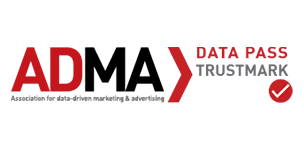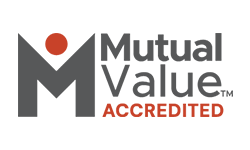With October coming to a close, it brings an end to Cyber Security Awareness Month for 2023. However, keeping safe online is an ongoing challenge.
The theme for 2023 was "Be cyber wise – don’t compromise". To recap, the Australian Cyber Security Centre shared 4 simple steps that you can take to be cyber wise and help boost your cyber security.
- Update your devices regularly
- Turn on multi-factor authentication
- Backup your important files
- Use passphrases and password managers.
Updating your devices regularly:
Updating your apps and devices may fix issues and address new security concerns or weaknesses that potential hackers could use to access your devices or accounts, and also add new layers of security that may help keep you protected.
- Patch Vulnerabilities: Software updates often include security patches that fix known vulnerabilities. Cybercriminals continually search for and exploit these vulnerabilities, so keeping your software up to date helps protect your devices from known threats.
- Protection Against Malware: Many updates could include improvements to the device's antivirus or antimalware software. Keeping these tools updated is crucial to detect and remove new types of malware effectively.
- Enhanced Security Features: Updates can introduce new security features and settings that help protect your device from evolving threats. These features may include enhanced firewalls, encryption protocols, or multi-factor authentication options.
- Data Privacy: Security updates often address privacy concerns. They may help safeguard your personal information by preventing unauthorised access to your data or tracking by malicious software.
- Staying Ahead of Attackers: Cybercriminals are continually developing new attack methods. Regularly updating your devices could mean you are less susceptible to the latest attack techniques.
Protect your accounts with multi-factor authentication (MFA):
MFA means having more than one check in place to prove your identity on an account. For example, you may need a code from a text message and your passphrase. It makes it much harder for cybercriminals to access your accounts and adds another layer for your safety.
- Increased Security: MFA adds an extra layer of security by requiring multiple forms of verification. This makes it harder for attackers to gain access to your accounts.
- Protection Against Stolen Credentials: If a cybercriminal manages to steal your password through phishing or other means, they won't be able to access your account without the second factor of authentication.
- Mitigation of Password-Related Risks: Weak, reused, or easily guessable passwords are common security risks. MFA lessens the reliance on passwords as the sole authentication method, reducing these risks.
- Secure Account Recovery: In the event you forget your password or lose access to your account, MFA can provide a secure way to regain access, as it's another check to determine that you are the legitimate account owner.
- Protection for Sensitive Data: MFA is particularly important for accounts containing sensitive information, such as email, financial accounts, and healthcare records, as it helps safeguard your most critical assets.
Back up your important files:
A backup is a digital copy of your most important information either to an external storage device or a server on the internet like the cloud. It means you can restore your files if something goes wrong.
- Data Loss Prevention: Backups can provide a safety net against data loss caused by hardware failures, human errors, malware, and other unforeseen events.
- Protection Against Ransomware: In the event of a ransomware attack, having up-to-date backups can help you restore your data without paying a ransom to cybercriminals.
- Disaster Recovery: Backups are essential for disaster recovery in the face of natural disasters, fires, floods, or other catastrophic events that could damage or destroy your data.
- Data Integrity: Regular backups ensure the integrity of your data. If files become corrupted or infected with malware, you can restore clean versions from your backups.
Setup secure passphrases and use password managers:
You can use a passphrase to secure your account. A passphrase is a strong type of password that uses four or more random words. This makes them hard for cybercriminals to guess but easy for you to remember. Also, with creating passwords that are harder to guess by outsiders it can be hard to remember all your different passwords. A reputable password manager can help generate or store secure and unique passphrases/passwords.
- Enhanced Security: Passphrases are typically longer and more complex than traditional passwords, making them more resistant to brute-force and dictionary attacks.
- Ease of Memorisation: Passphrases are easier to remember than a string of random characters, making it easier to create and remember strong passwords.
- Unique and Hard to Guess: Passphrases can be unique for each account, reducing the risk of attackers gaining access to multiple accounts if one passphrase is compromised.
- Secure Storage: Password managers store your passwords and passphrases in an encrypted vault, keeping them safe from unauthorised access.
- Convenience: Password managers automatically fill in login information, simplifying the login process and reduce the need to remember or type complex passwords.
- Password Generation: Password managers can generate strong, random passwords and store them for you, removing the need to create and remember complex passwords.
Cyber Security is an ongoing battle. We must take all precautions that we can to keep ourselves safe. You can learn more about Cyber Security and stay informed by visiting the Australian Cyber Security Centre website.
Need help?
If you believe someone has gained access to your personal information, even if the scam appears unrelated to your finances, you should contact your bank immediately. A timely response can be critical in giving you the best chance to stem any loss.
• If you have concerns about your G&C Mutual Bank account, contact us on 1300 364 400.
• You can find out how scams work, how to protect yourself, what to do if you’ve been scammed or report a scam to the Australian Competition and Consumer Commission (ACCC) via the ACSC or the Scamwatch websites.




